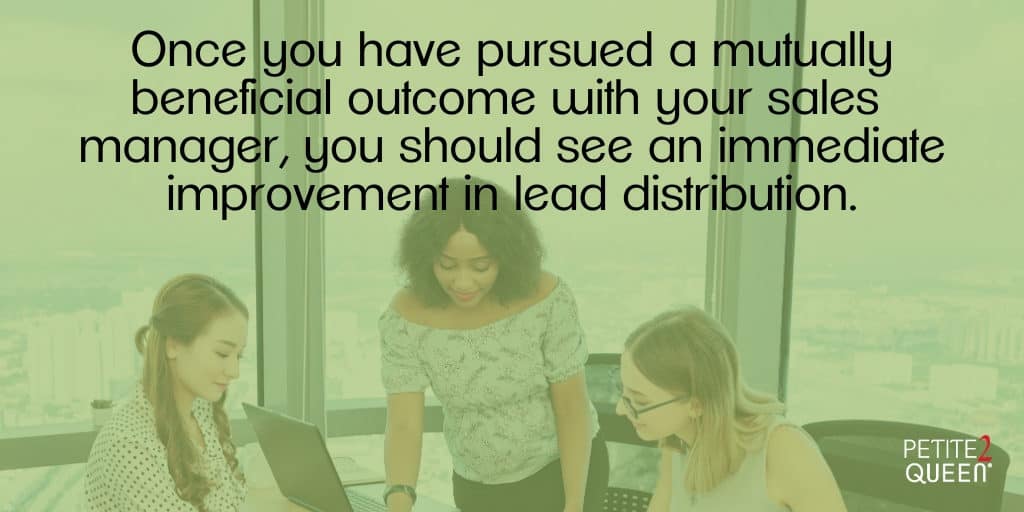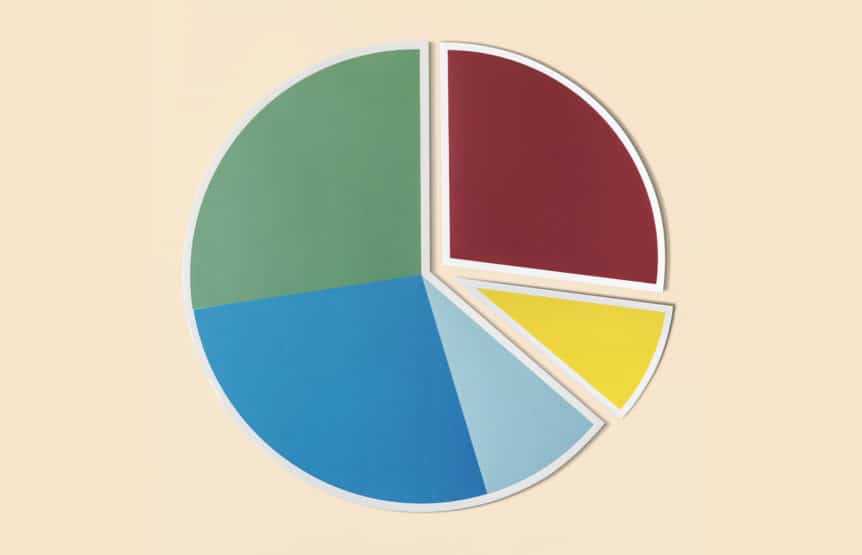Our company distributes the leads that come in to the sales reps. A disturbing pattern has emerged. Our sales manager gives the best leads – multi-million-dollar opportunities – to the male sales reps. The women reps get the leftover one-offs. Do I point this out to our manager or go right to HR? How should I handle this uneven distribution of sales leads I’ve noticed? – Samantha in Calais, Maine
Answer:
With any thorny challenge, it’s always a good idea to take a step back and examine all the angles. As we scrutinize a prism, we will discover alternate interpretations of a given situation. Clarity is important to guide our action.
In these circumstances, yes, it could be outright misogyny leading to the uneven distribution. It could also be unconscious bias. Another obvious option is a strategic business decision. There are many other possibilities. But, before you start to hate on me, let’s consider door #3 – business strategy.
Evaluating the Business Strategy
Sales is the life blood of any business. As my good friend Tom Bligh says, “Just try living without your customers for 30 days.” Without sales, businesses fail. It’s that simple. The juicy multi-million opportunities may be going to the sales professionals with proven expertise to handle these types of accounts – the rainmakers within the organization – due to their own hard work, experience, and merit.
Before you reject door #3 out of hand, be honest with yourself. Are the people receiving these valuable leads, who happen to be men, worthy? Have they earned their spot on the top? If this is the case, you will want to direct you approach to reach the same pinnacle. Prepare and make a pitch to your sales manager on why you are ready to assume more responsibility. Demonstrate that you are hungry to expand your base. Ask for the opportunity.

Confronting Unconscious Bias
What about all the other possible doors? There are myriad reasons this could be happening. If, after honest and careful consideration, asking “why” at least six times, you reach the conclusion that the situation is not equitable, bone up on having a crucial conversation. Preparation is key. As is not assuming the worst (blatant misogyny).
In this scenario, I would approach as unconscious bias. This is not intentional. Make sure you have the conversation in person. Phone, email, or text are not appropriate and are so easy for misinterpretation. During the discussion, ask questions, listen, and express empathy. Re-center the conversation if it starts to go sideways. Utilize powerful pauses to process input received and given. Position yourself as an ally and be respectful. This is your boss. Disengage and reschedule the conversation as needed to maintain a good working relationship.
Once you have pursued a mutually beneficial outcome with your sales manager, you should see an immediate improvement in lead distribution. Individuals and organizations with integrity will make it right. If the egregious behavior and uneven distribution continues, you will need to take this to HR.
Going to HR
If it comes to that, gather all documentation of gender bias. Chart the leads, lead value, and assigned sales rep. Include facts and figures on seniority, experience, and performance of the entire sales team. Ask your sister sales reps to join you in a discussion with your HR manager. Clearly articulate how the biased lead distribution is creating a significant income disparity based on gender. Stay focused on the key takeaways and required steps to remedy the situation.
Without prompt resolution, your final step is the EEOC and a potential lawsuit. Hopefully it will never come to that. Most organizations will step up and correct the problem. Talent is a horrible thing to squander. Their success is due to your success, and builds a stronger company when everyone is working together.
Resources:

Lynn Whitbeck is the co-founder and President of Petite2Queen. She is focused on identifying and evaluating opportunities for women at work, helping them define their personal roadmap. She dedicates herself to delivering tools and insights, embracing visualization of the big picture, and identifying and implementing the minutiae of detail. Lynn aims to share lessons learned along her journey and enable positive uplift for women.

